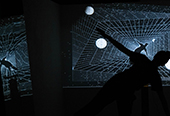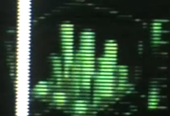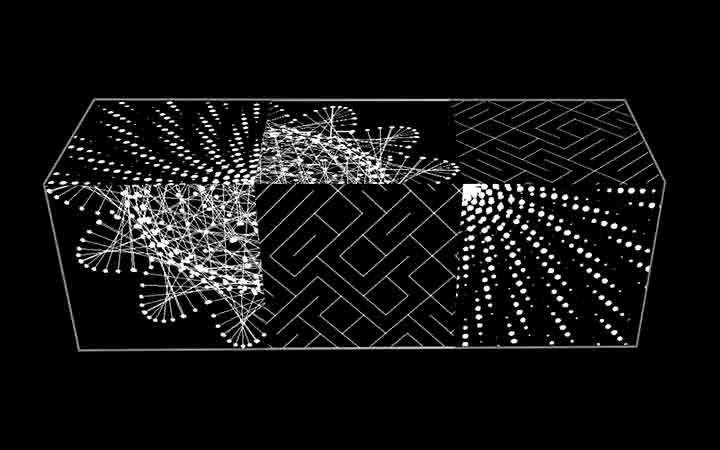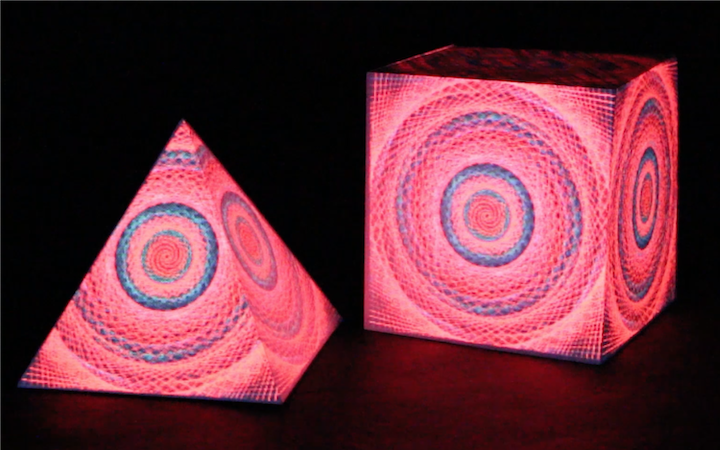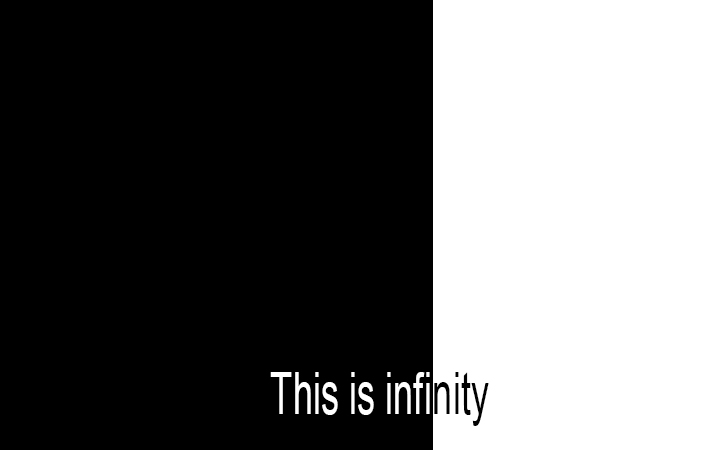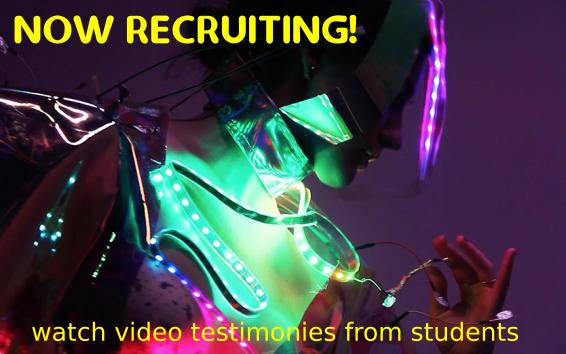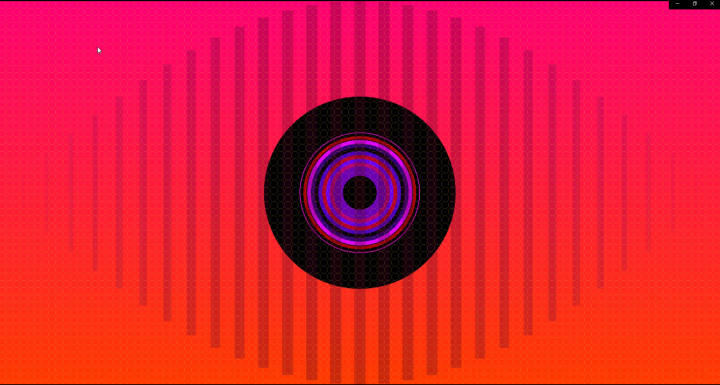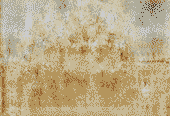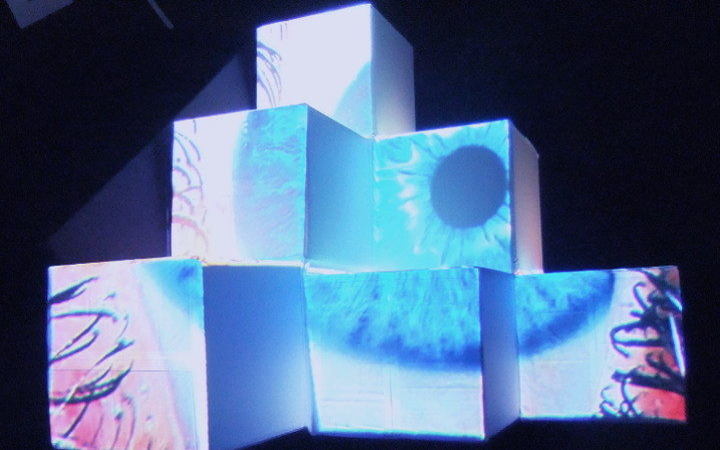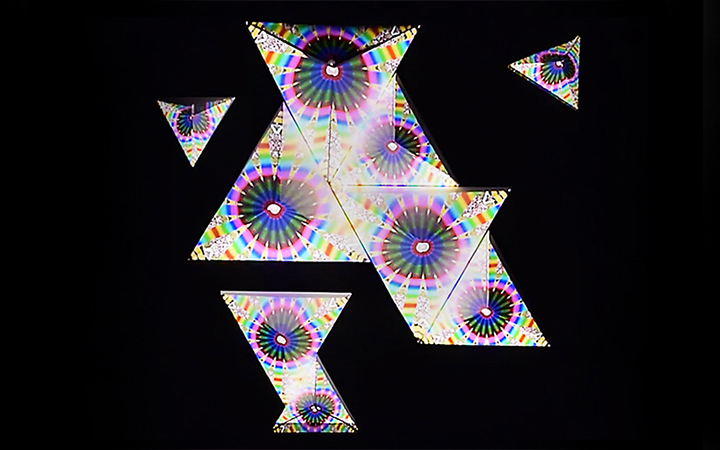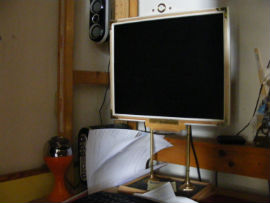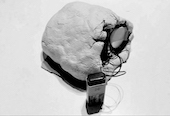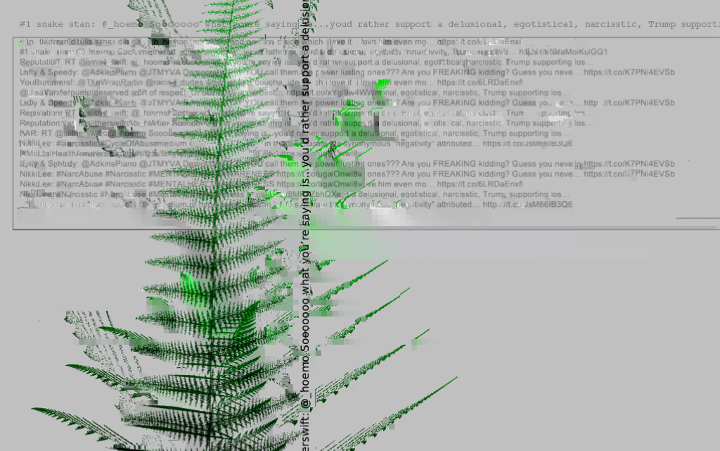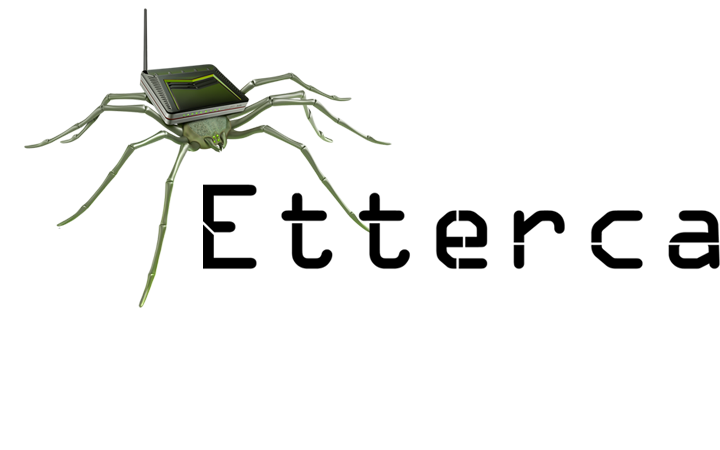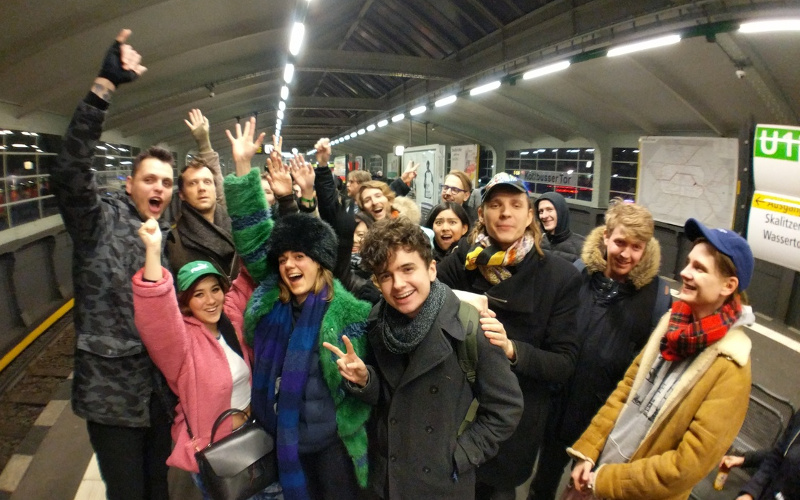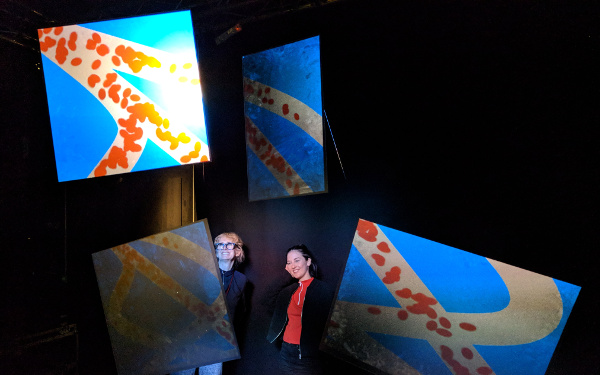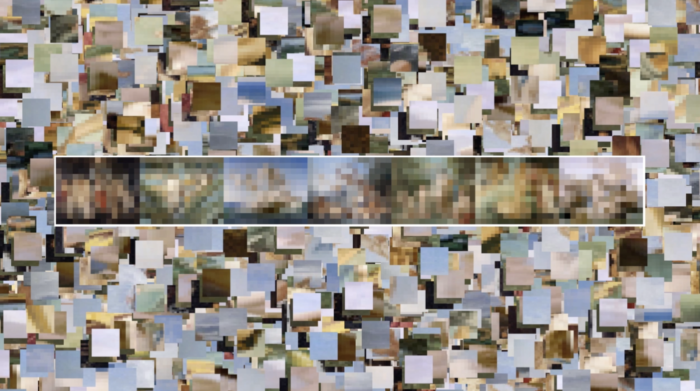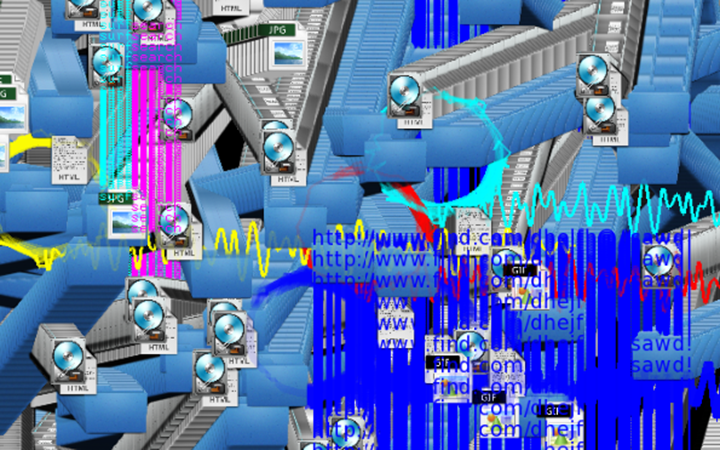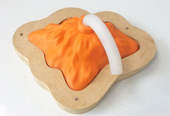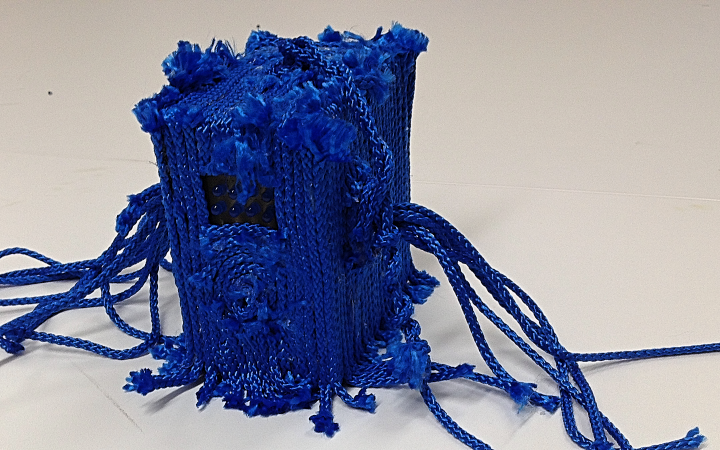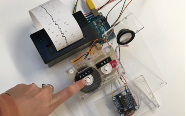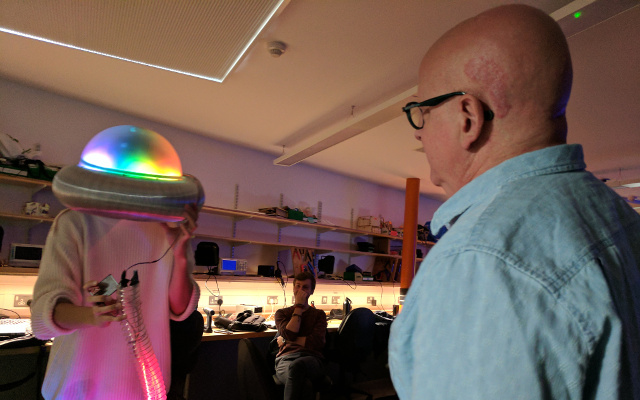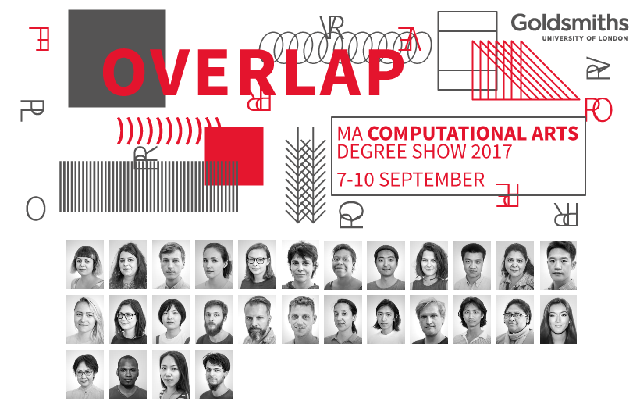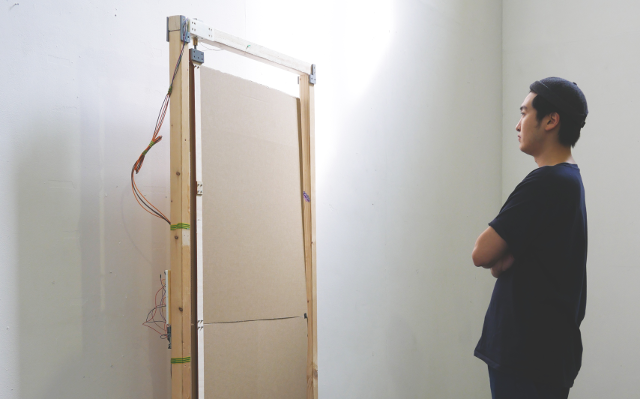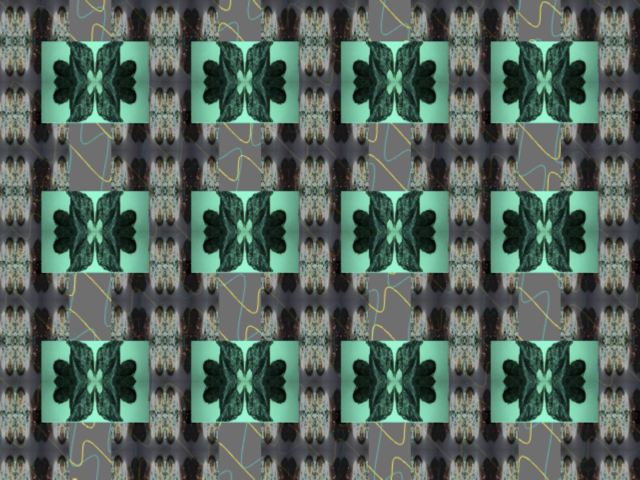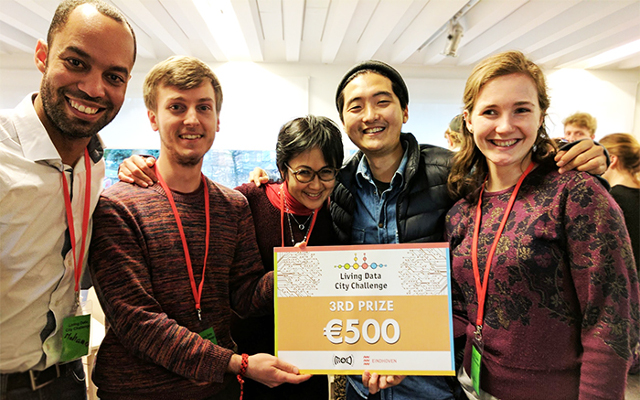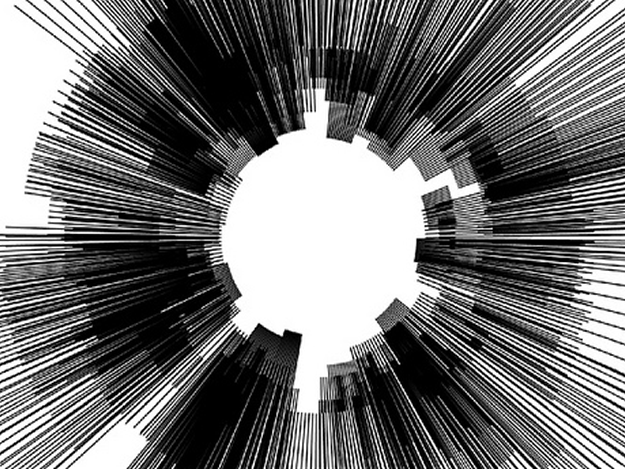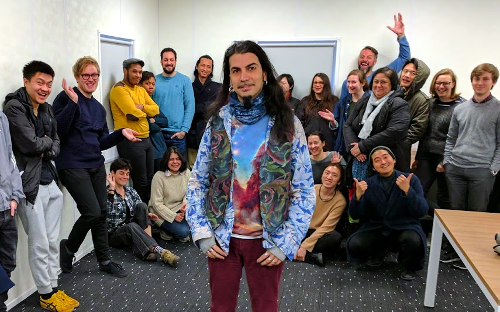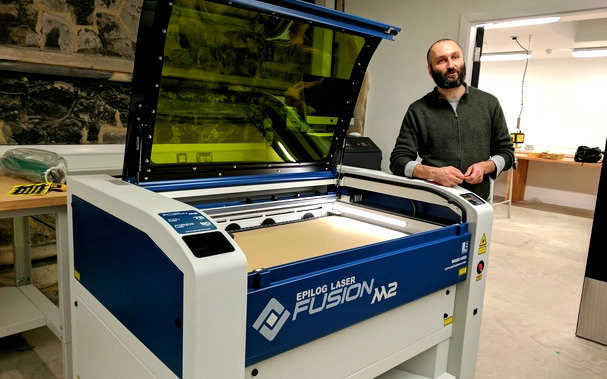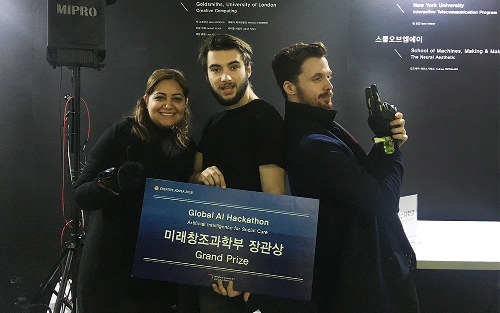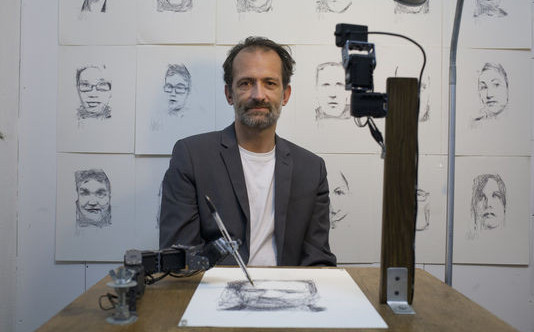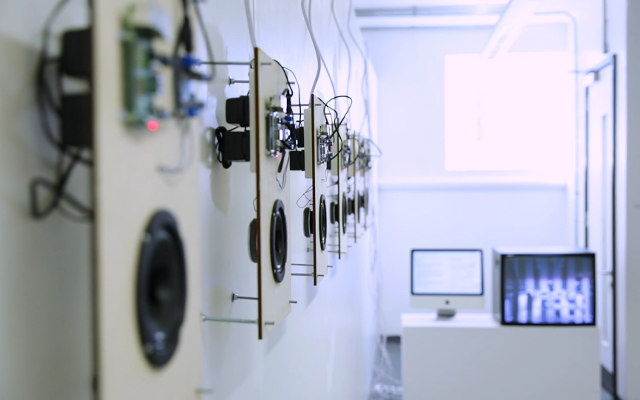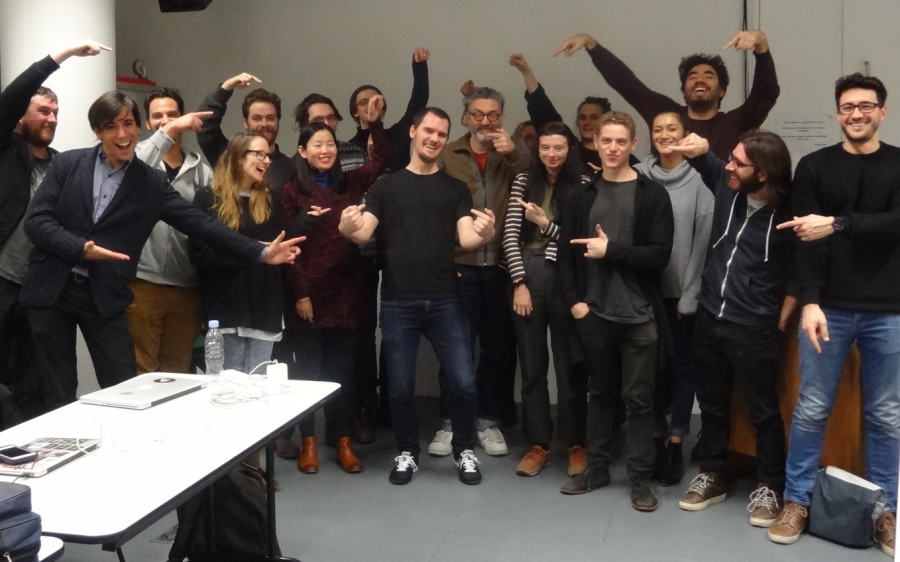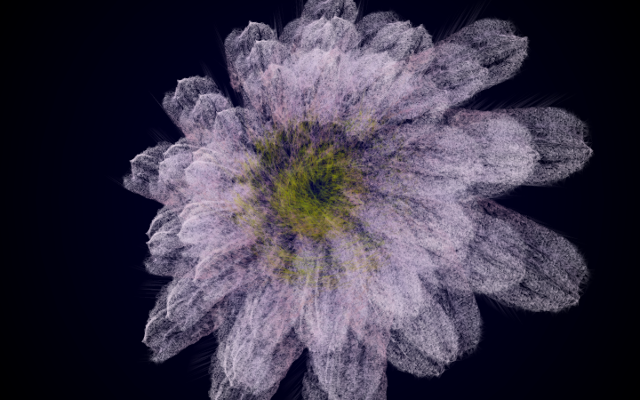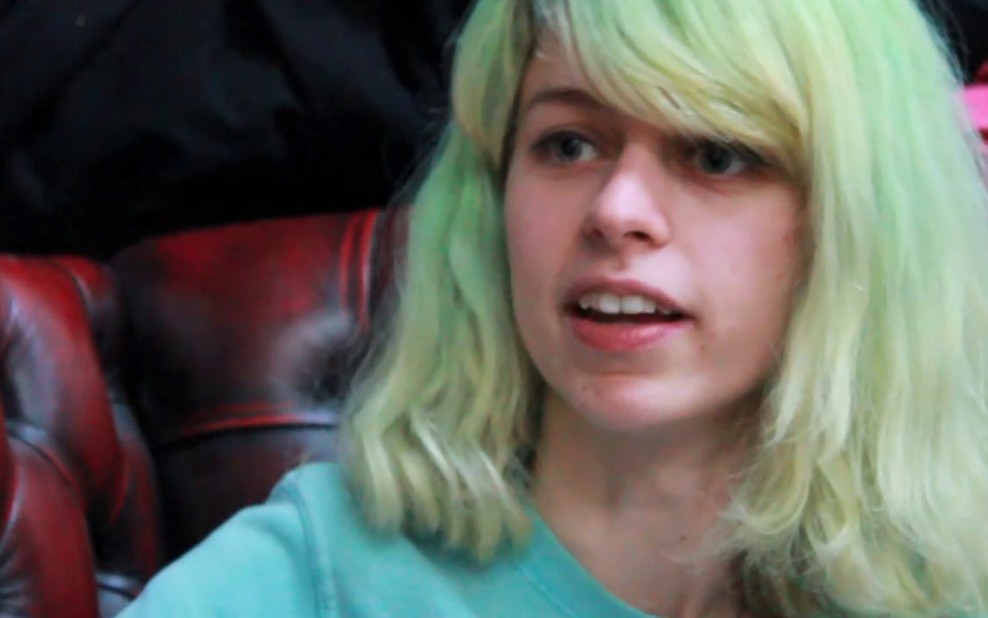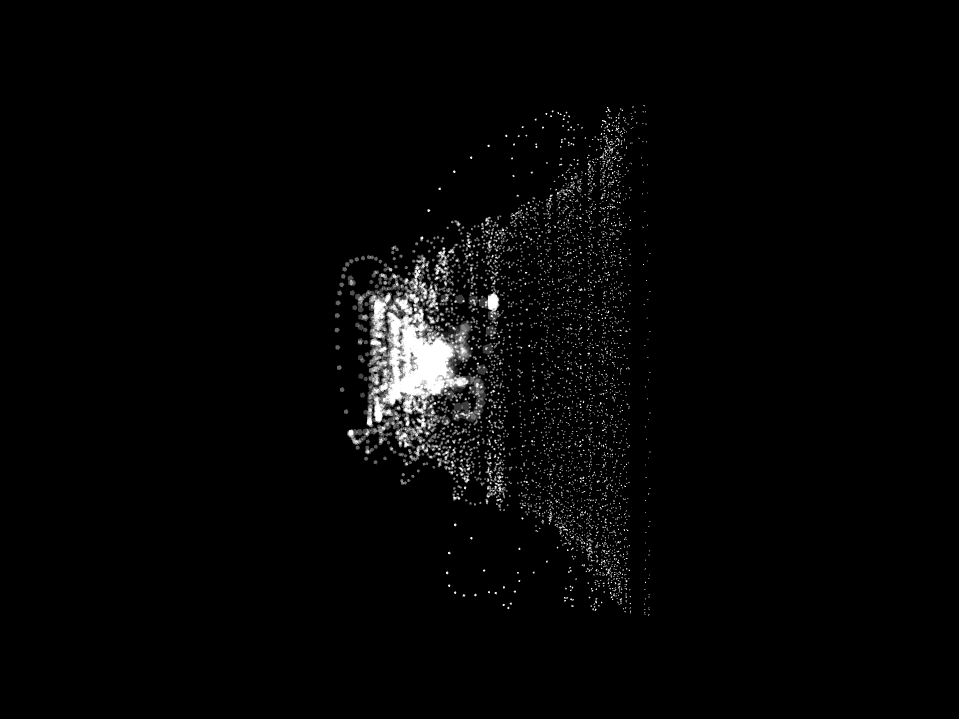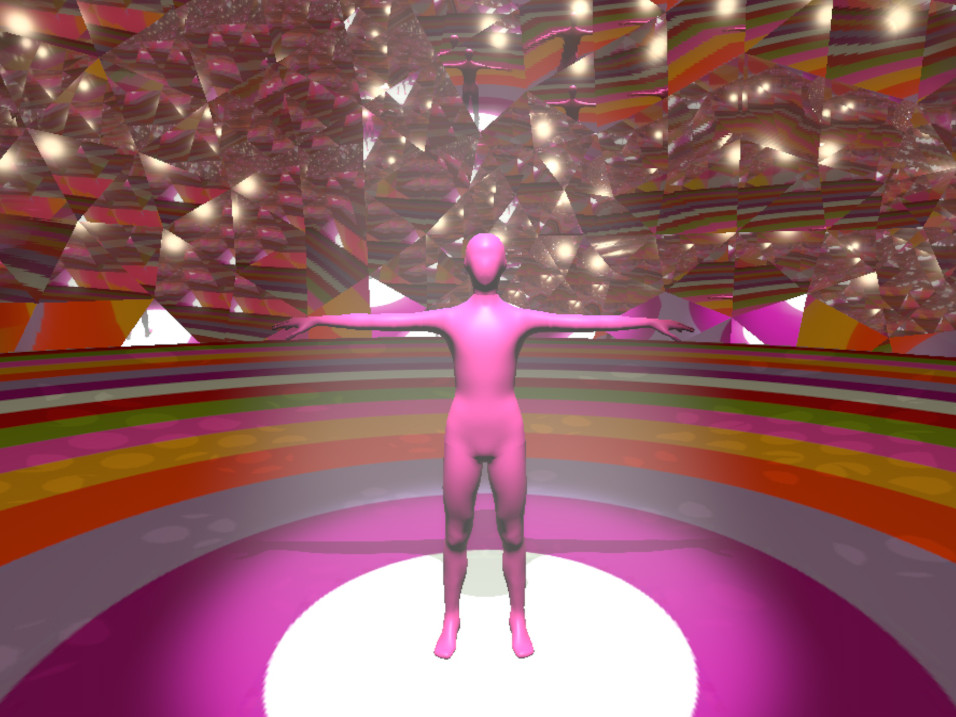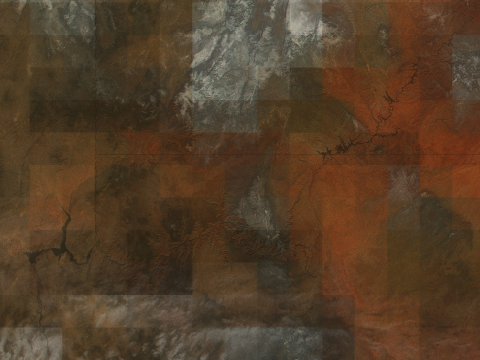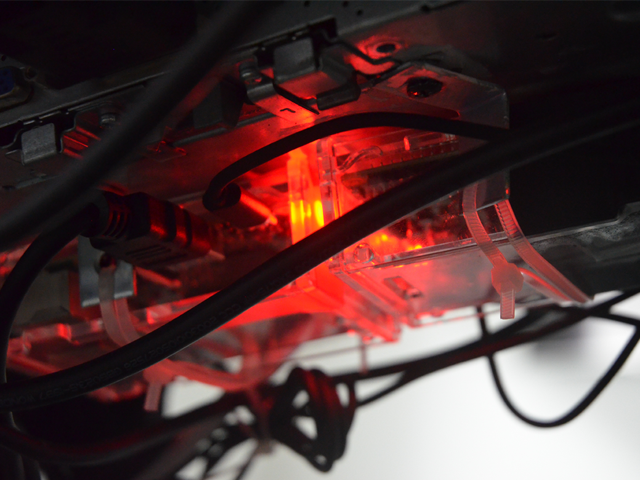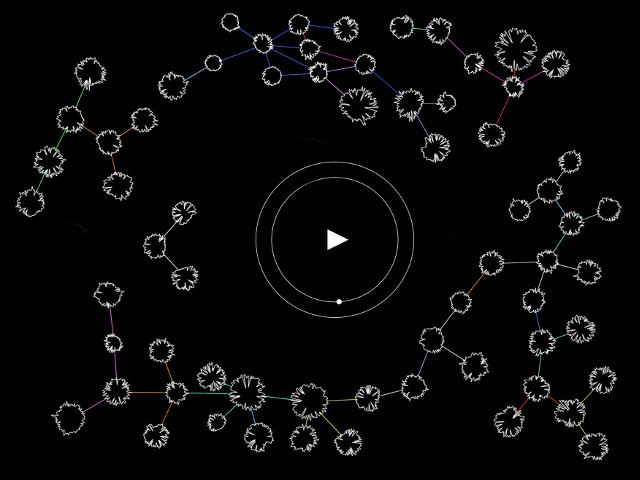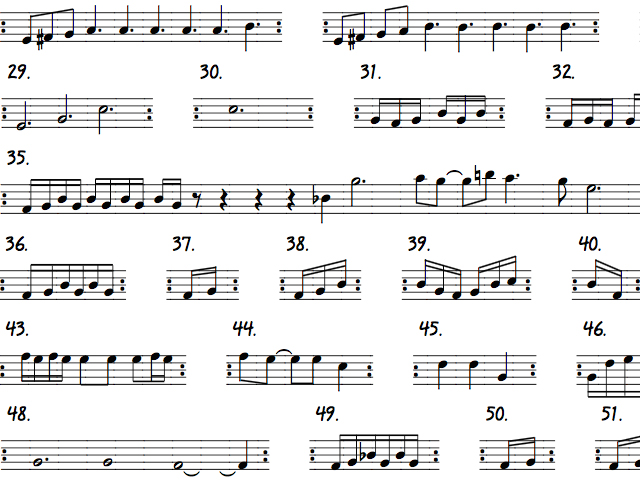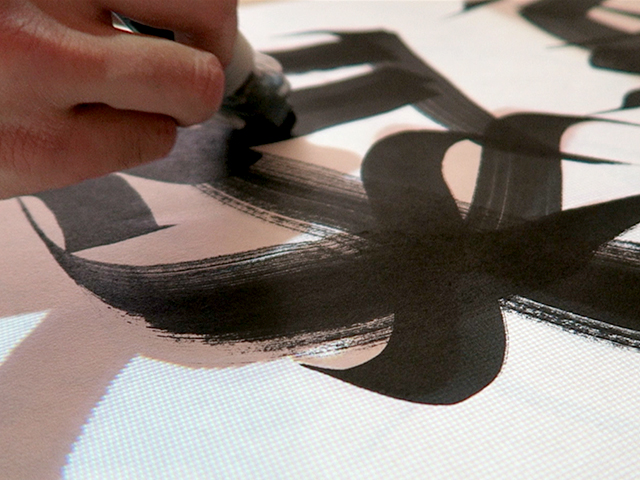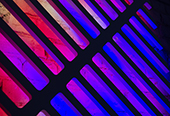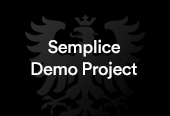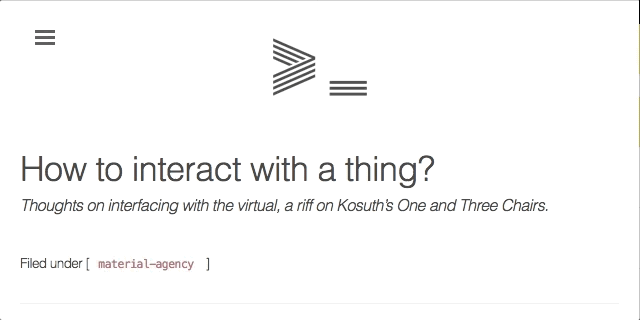Expanded Interface
A speculative exploration of the interface; the relational boundary between humans, computation and matter. https://expandedinterface.github.io
produced by: Rebecca Aston, Megan Bates, Tin Geber, Jana Velinova
Expanded Interface is a speculative exploration of the interface; the relational boundary between humans, computation and matter. It is a collection of thoughts and experiments in an online Zine, intended as an invitation into a movement to use technology on our own terms. We acknowledge the power of computational systems and want to empower “Users”, everywhere, to be more cognisant of how they interface with technology.
Expanded Interface utilises the multimedia format of a website to collect different approaches to examine and broaden interface experiences. To explore these approaches, we combined research with iterative generation of “transitional artifacts”: rituals, speculative writing, visual essays, guides, case studies and reflections. We take direct inspiration from the Anarchist cookbook, and the Fluxus movement, in choosing a broad and malleable canvas for our exploration. Through the process of writing and generating experiments, we began to parse out certain topics and strains of thought. Our resulting categories are by no means definitive, but rather serve to draw loose connections between the theories and problems that individual pieces address. These categories are: Framework, Transparency, Ritual, Trust, and Material Agency.
Each of these categories references ideas along various paths of philosophical thought, including Inke Arns, Heidegger, Lucy Suchman and movements including New Materialism and The Nonhuman Turn, as well as histories of ritual and performative cultural practices. We do not pretend to provide a complete understanding of any of these concepts, but found a useful space in the intersections between them to reflect on our personal experiences with technology. We wish to provide an accessible space for users to come into contact with these ideas and provide them with some tools to do their own reflection and speculation.
Expanded Interface aims to enable people to detach their discussion around interface from questions of functionality, ease of use, and productivity, and reorient it towards social, material, and emotional affect. As interfaces become increasingly seamless and invisible, the designers’ influence over our behaviours becomes harder to examine. Transparency about what computers do could prevent our loss of freedom to these behaviour-modifying systems. A relationship without boundaries is demanded from us when we take up with technology; it expects to be your friend, your educator, your slave and your lover. We aim to be more aware of the implicit and explicit influence of biases over these intimate relationships, which can arise from both creators and the material agency of computation. We hope to provide alternatives to any vexing issues surrounding human interface interaction and exchange.
Thinking about interface as practice, we reflect on the processes and the effects of the relationships between humans and technology. How do we live alongside technology in a way that our own emotional and material experience is in tune with the material agency of technology? We encourage visitors to think through, and experience, alternative options of engaging with interfaces.
References:
Book Sources:
Bennett, J. Vibrant Matter: A Political Ecology of Things. Dunham and London: Duke University Press, 2010.
Ekman, U. David Bolter, J. Diaz, L. Sondergaard, M. and Engberg, M. eds. Ubiquitous computing, complexity and culture. Abingdon, UK: Routledge, 2015.
Grusin, R. "Introduction". In The nonhuman turn. Minneapolis, USA: University of Minnesota Press, 2015.
Heidegger, M. Being and Time. London, UK: SCM press, 1927 (1962).
Lanier, J. Dawn of the New Everything: Encounters with Reality and Virtual Reality. New York, USA: Henry Holt and Co., 2017.
Suchman, L. Figuring the Human in Ai and Robotics. Cambridge, UK: Cambridge University Press, pages 226-240, 2012. Available at: https://doi.org/10.1017/CBO9780511808418.015
Journal Sources:
Arbesman, S. What Kind of Sorcery Is This? Why code is so often compared to magic. 2016. Available at: https://www.theatlantic.com/technology/archive/2016/05/the-magic-of-code/478794/
Arns, I. Transparent World Minoritarian Tactics in the Age of Transparency. 2011. Available at: http://www.inkearns.de/wp-content/uploads/2011/01/2011_Arns_InterfaceCriticism.pdf
Chen, M. Animacies. Dunham and London: Duke University Press, 2012. Available at: https://www.dukeupress.edu/Assets/PubMaterials/978-0-8223-5272-3_601.pdf
Gell, A. Technology and Magic. Anthropology Today. Royal Anthropological Institute of Great Britain and Ireland. Vol. 4, No. 2. 1988. Available at: http://www.jstor.org/stable/3033230?seq=1#page_scan_tab_contents
Huhtamo, E. The Pleasures of the Peephole: An Archaeological Exploration of Peep Media. Imaginary Media, Holland, Netherlands: ed. Eric Kluitenberg, De Balie publishing, Introduction, 2006. Available at: http://gebseng.com/media_archeology/reading_materials/Erkki_Huhtamo-Pleasures_of_the_Peephole.pdf
Malafouris, L. & Renfrow, C. The Cognitive Life of Things: Archeology, Material Engagement and the Extended Mind. Cambridge, UK: McDonald Institute of Monographs 6, Introduction, 2010. Available at: http:// www.neuroscience.cam.ac.uk/publications/download.php?id=13936
Picard, R. & Wexelblat, A. Future Interfaces: Social and Emotional. Cambridge, MA: MIT Media Lab, abstract. Available at: http://affect.media.mit.edu/pdfs/02.picard-wexelblat.pdf
Web Sources:
Aranda, J. & Vidokle (2004). e-flux. [online] Available at: http://www.e-flux.com/
Stelarc. Alternative Interfaces. [online] Available at: http://stelarc.org/?catID=20218
Steyer, H. Tollman, V. Levin B. Schmoetzer, M. Lamb, F. Jain, A. Rapoport, R. (2016). The Research Center of Proxy Politics. [online] Available at: http://rcpp.lensbased.net/
Source code:
- https://github.com/expandedinterface/expandedinterface.github.io
- visual design based on the "Ed." Jekyll Theme


